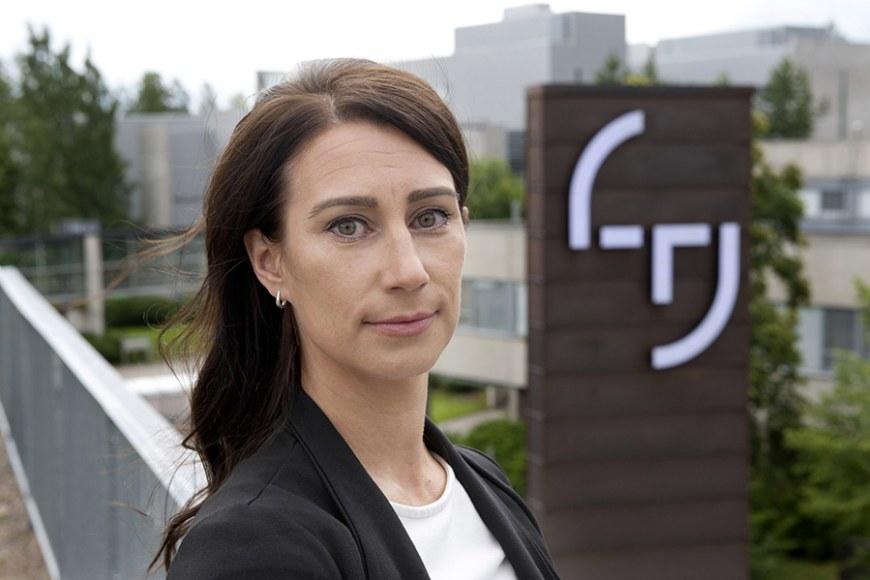
The University of Tampere and Tampere University of Technology merged in 2019. Together with Tampere University of Applied Sciences, they form a new higher education consortium. There is still little research on the merger and the perspective of Tampere University of Technology and technical fields has received less attention in both news and research.
In her doctoral dissertation, Tea Vellamo examines the Tampere University merger from the point of view of technical fields and the actors of the former Tampere University of Technology.
In the dissertation, those in technical fields were able to bring forward their own understanding of the merger process and the particular aspects of identities in technical disciplines and technical universities. The research data consisted of interviews, surveys and documents collected during the merger process and immediately after it.
Organisational and disciplinary identities and individual identification with them are central to job satisfaction and attachment to the organisation, among other things. Although the identity of the new organisation and identification with it takes shape over time, but before this can happen, many may leave the work community if they do not identify with the new university.
Based on the results of the study, the organisational identity at the former Tampere University of Technology was presented as uniform, and differences between the disciplines were not emphasised. This was discovered from the interviews with the university’s top management and from the survey material regarding the new university’s faculty structure. The unity of the technical disciplines was further emphasised during the merger process.
Key aspects of the organisational identity of Tampere University of Technology were entrepreneurship and close connections with industry. The technical university was also described as well organised and managed, its scientific research as international and its degrees as prestigious.
“It was hoped that these positive aspects of technical identities could be preserved in the new merged university,” Vellamo says.
“Those in the technical fields were afraid that in the large comprehensive university with multidisciplinary faculty structures, the particularity of technical fields might be lost and the reputation of the university’s engineering education might be jeopardised in the minds of stakeholders,” she adds.
Discrepancies and differences in technical identities
Although the organisational and disciplinary identities seemed very uniform, there were also differences and discrepancies related to technical identities: at the individual level, the identification of the academic staff with technical disciplines and the technical university varied.
“The identity of technical disciplines has historically been male, and some female academics did not identify with the disciplinary or organisational identities. When identification with technical disciplines and Tampere University of Technology was not strong, the university merger was also seen as an opportunity for positive identity changes whereby a new comprehensive university could offer an opportunity to shape technical identities in a more inclusive direction,” says Vellamo.
The doctoral dissertation helps to understand the Tampere University merger from the point of view of technical fields. When building the new university’s organisational identity, it would also be possible to better consider features that are central and important to the identities of previous organisations. The results of the study can also be used in the evaluation and development of national higher education policy.
Tea Vellamo holds Master’s degrees in Arts and Administrative Sciences. She works as Senior Specialist in the Flagship for Photonics Research and Innovation (PREIN) at the Faculty of Engineering and Natural Sciences at Tampere University. She has a long work history in both the former University of Tampere and Tampere University of Technology in research and the administration of education.
M.A. and M.Sci. (Admin.) Tea Vellamo’s doctoral dissertation in the field of Administrative Sciences Technical Identities in a University Merger - Organisational, Disciplinary and Individual Perspectives will be publicly examined at Tampere University’s Faculty of Management and Business on Friday, September 2, 2022, at 12 in lecture hall Pinni B 1096 (address: Kanslerinrinne 1, Tampere). The opponent will be Associate Professor Agnete Vabø from Oslo Metropolitan University. The Custos will be University Lecturer Elias Pekkola from the Faculty of Management and Business.
The dissertation can be followed remotely via a remote connection (Panopto).
The dissertation is available at:
https://urn.fi/URN:ISBN:978-952-03-2521-3
Photograph: Hannu Vanhanen
